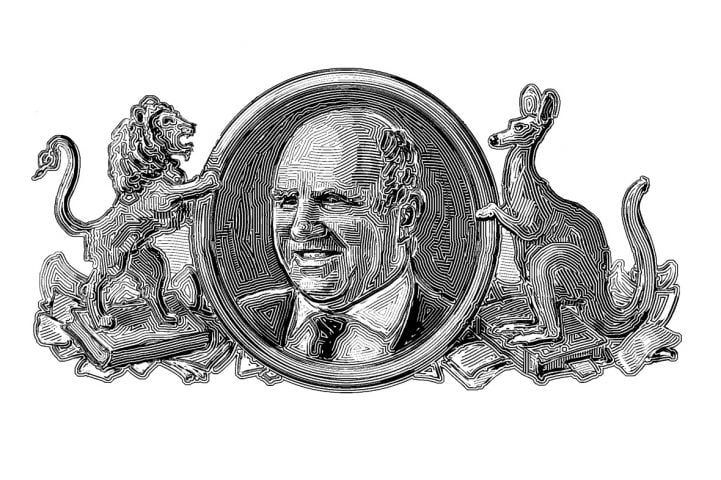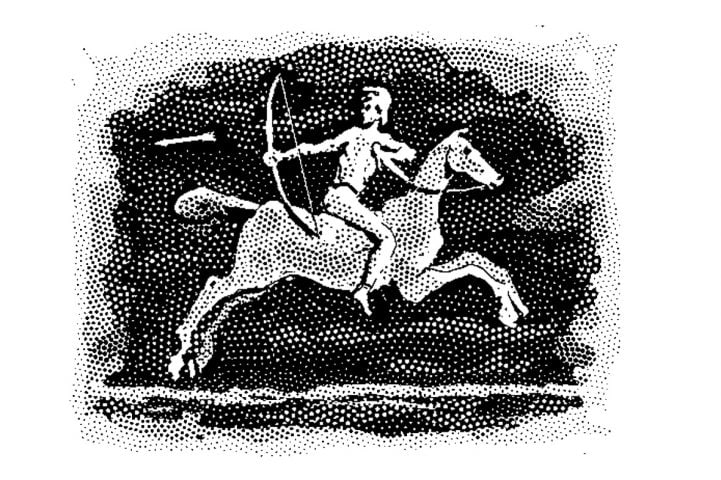Books Reviewed
A review of Lincoln’s Political Thought, by George Kateb
Students of Abraham Lincoln marvel that, when not quite 29, he warned of a “towering genius” who would seek glory by “emancipating slaves, or enslaving freemen.” In Lincoln’s Political Thought, Princeton political theorist George Kateb claims he did both, destroying the Constitution in two ways—by advancing the 13th Amendment, which overthrew a “Constitution of slavery,” and by suspending constitutional freedoms in fighting the Civil War.
Having come to this stunning conclusion, he laments, “My intense admiration remains, but is now joined to some dismay.” He attacks Lincoln for not being “an abolitionist” until later in the war. Yet he also recognizes that had Lincoln spoken as he eventually acted, he would never have been elected (or reelected) president. This tension between the demands of morality and of democratic politics informs the entire book, which should be read less as a condemnation of Lincoln than as a sorrowful reflection on America’s racism and its laughable attempts at redemption. “[I]t is nearly impossible,” Kateb sadly concludes, “to do the right thing for the right reasons, actually held and honestly stated.”
His announced aim in this work is to “try to understand Lincoln’s words.” But too often he interprets without grasping the connection between Lincoln’s words and his deeds, and he distorts what Lincoln (and the American political tradition) meant by its central concept of equality. In Kateb’s embellished reading, the Declaration of Independence stands for the “proposition that freedom from personal tyrants and public systems of tyranny was a right of all persons and races,” and the great question is how this conception or any conception of the revolutionary principle of equality might be put into practice.
Kateb has always found it difficult to reconcile theory with practice, the key task of statesmanship. This was evident almost 50 years ago in his exasperated review in Commentary magazine (August 1965) of Harry V. Jaffa’s book Equality and Liberty.
How could it be that this student of Professor Leo Strauss, this ardent author of a brilliant book on the slavery controversy in the 1850’s, this respected teacher of political theory, would lend his intelligence to [Barry Goldwater’s] cause? It is bad enough that professors should be partisans; worse that professors of political theory should be partisans. But there must be limits: working for Goldwater—not just for the Republican party, at a decent remove from its temporary leader, but for the leader himself—must surely be beyond reasonable limits.
Commentary has changed for the better over the past 50 years, but Kateb, along with much of the non-neoconservative American Left, has stubbornly remained the same. He understands the role of political principle neither in his own time nor in the Civil War. Jaffa’s embrace of conservative politics in the 1960s, Lincoln’s devotion to the allegedly racist Constitution in the 1860s—both fit what Kateb condemns as an ugly, irrational, hypocritical pattern. But it is Kateb who allows his partisanship to interfere with his reason.
The Peoria speech, for example, made the restoration of the principles of the Declaration of Independence the central goal of Lincoln’s rekindled political career. The speech could also be called the first Lincoln-Douglas debate, as Lincoln appropriated the crowd that Senator Stephen Douglas had just addressed on behalf of the Kansas-Nebraska Act. Lincoln argued that “the spirit of seventy-six and the spirit of Nebraska are utter antagonisms,” but he proposed as a remedy not abolitionism but a return to the Missouri Compromise.
For Kateb, this speech marks Lincoln’s moral failure to meet the evil of slavery head-on. Lincoln insisted that the Southerners were “just what we would be in their situation,” but Kateb is disgusted by this “imputation of goodness” to the slaveholder and thinks that Lincoln’s attitude underestimates the “intensity of the South’s unappeasable ambition…its immitigable ferocity.” Lincoln’s repeated attempts to gain sympathy for slaves from his audience do not impress Kateb. He apparently thinks Lincoln should have recognized the need for a terrible war. Kateb implies that slaveholders were beyond reason and could only be ruled, as barbarians, by force. Maybe he thinks the same about the rest of us: in “postslavery American malignity,” he observes, the denial of black humanity “is still operative today.”
* * *
Lincoln’s acceptance of slavery’s presence in the Constitution as a necessary evil, in Kateb’s eyes, denies that black lives matter. He dismisses Lincoln’s argument that a Union founded on the only anti-slavery principle we know—the principle of equality—was the best hope for putting slavery in the course of ultimate extinction. It is merely “speculative,” he contends, that a divided country without the Constitution would be vastly worse than the pro-slavery one that developed. Lincoln’s “political religion” worshipped false gods.
Kateb’s welcoming of a total war against slavery is more fully developed in his provocative thoughts on the Second Inaugural. For him, Lincoln’s “single greatest sentence” remains unlike any other political statement ever made:
Yet, if God wills that it continue, until all the wealth piled by the bond-man’s two hundred and fifty years of unrequited toil shall be sunk, and until every drop of blood drawn with the lash, shall be paid by another drawn with the sword, as was said three thousand years ago, so still it must be said “the judgments of the Lord, are true and righteous altogether.”
Americans in fact merited an “apocalypse of extermination” for the sin of slavery. According to Kateb, this speech “rightly understood would have been enough to pull the trigger to kill Lincoln.”
* * *
But in fact, Lincoln showed that his Emancipation Proclamation, which encouraged slave revolts, did not contradict the Declaration of Independence, which in Thomas Jefferson’s original text condemned slave revolts: both documents promoted natural rights. Lincoln transcends Old Testament justice with New Testament mercy, referring to Matthew 7:1 on judgment and quoting Matthew 18:7, “Woe unto the world because of offences! for it must needs be that offences come; but woe to that man by whom the offence cometh!” The New Testament points not to further vengeance but to the trans-political mercy and peace with which Lincoln concludes: “With malice toward none, with charity [agape or Christian love] for all….” Lincoln fittingly concludes the Second Inaugural with a reference to James 1:27, “To visit the fatherless and widows in their affliction, and to keep himself unspotted from the world.” This is the charity required to rebuild the republic on the basis of a “new birth of freedom.” Such sacrifices and judgments must be seen in the light of God sacrificing his son for the redemption of the sinful world. Lincoln is in fact Allen Guelzo’s “redeemer president,” not Kateb’s “avenger president.”
Among Kateb’s many omissions (he ignores the First Inaugural entirely) the worst—and the most revealing—is his slighting of the Gettysburg Address. Yet, if Kateb had considered this greatest of speeches on patriotism and American identity, he would have had to attack it as an example of the “cruelty lodged in the heart of the theory of the social contract.” In an exchange with Walter Berns (see the Cato Unbound roundtable, “Patriotism: What Is It Good For?” March 10, 2008, available online), he once declared, “If no one were a patriot, the world would be better off than it now is, when almost all are patriots.”
Even the “transformative” 13th Amendment leaves Kateb uneasy, because Lincoln employed low politics to get it adopted. Kateb’s Kantian denunciation of prudence might drive one to praise Machiavelli—had we not Lincoln’s example.





